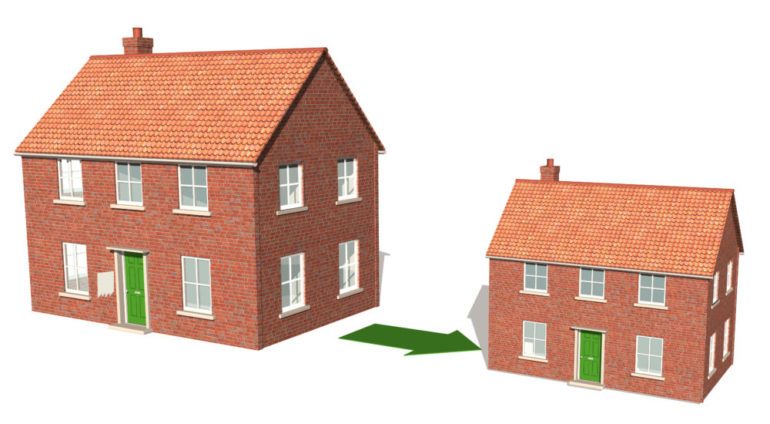Downsizing is the byword in the soon-to-be-retired set, shedding the outsized house for smaller, more manageable living. But before you sell your house, develop a plan and answer these questions.
Where do you want to live?
Even in your golden years, location is a prime consideration in owning real estate. While raising kids you wanted to be near good schools. As you age, you’ll want to consider such things as access to health care, how your state may tax your retirement income, being near to your adult kids and your grandchildren.
Write down and prioritize the answers to these questions. Ask yourself if you have what you need in your current home, or where you could move that might be better.
How often do you expect overnight guests?
Will your kids and grandkids come often to visit overnight? If you downsize, will it crimp your ability to host them? Forecast a realistic amount of time you might host visitors and make it a consideration in your downsizing decision. Does it make sense to pay for a larger place just to host overnight guests on occasion? It may make more sense to pay for a nearby hotel room rather than taking on the cost of a bigger home.
How much smaller of a house do you want?
Reducing from 6,000 square feet to 2,500 may be savings worth the effort. Reducing from 4,000 to 2,500 may not. Depending on the location of the next house as well as how long you’ve lived in your existing home, prices may have increased so much over the years that it doesn’t make financial sense.
If you do downsize, budget lower than what you could really afford. Even though many states offer some version of a property tax cap beginning at age 65, rising state and local taxes plus inflation will gradually eat into your budget over time. When you are on a fixed income you will get squeezed.
Can you handle maintenance as you age?
For many near-retirees, this is the issue with the biggest impact, especially when health needs arise. Handling home repairs and landscape maintenance becomes more difficult. Selling and buying into a condo community that provides those services from your association dues could be the answer.
Can you age in place at your current home?
Will your current floorplan work as you and your spouse age and health issues reduce mobility? Research the cost of remodeling to widen doors, install lipless thresholds on entries and showers, lower kitchen and bathroom counters, appliances, faucets and light switches. Then compare those makeover costs to buying a house or condo already equipped with them.
Consider living in a one-story home as you age. At the very least stairs become more bothersome, and become an outright obstacle with the onset of mobility restrictions.
Social life when you downsize
Do you have friendships with people around you now from which you don’t want to move? If you move, look for a place where you could find people your age that you could build bonds with.
Don’t forget your pets
If you look into moving into a condo community or any neighborhood with a homeowners association, be sure to find out the rules on pet ownership if you have a beloved dog or cat.
Related – Should You Buy a Home with Visitors in Mind?


